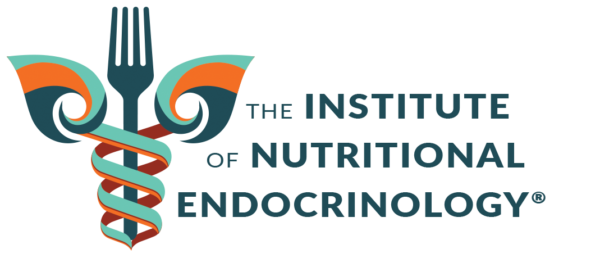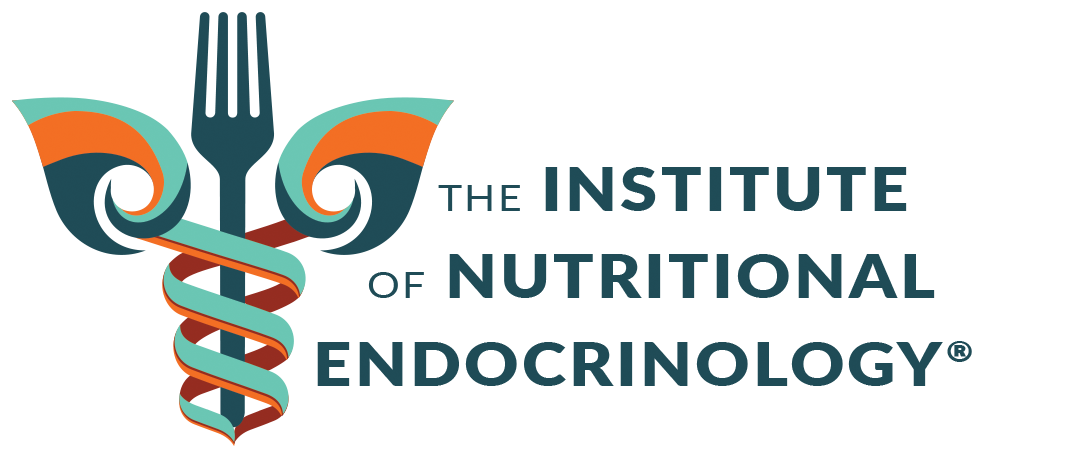Clinical Pearls – 2015
Emotions And Gut Health – September 20th, 2015
Nutritional Endocrinology Practitioner Training (NEPT)
Clinical Pearl
September 20th, 2015
Emotions And Gut Health
We get very focused on the “doing” part of helping people with their health challenges and the emotional component is often the real root cause. Listen in to my last radio interview with Arttemis Keszainn and learn the impact of emotions in digestion.
Access the show below:
After listening, post to the Facebook group an action you can take either for yourself or a client to put the teachings to work for you.
Nutrigenomics – September 13th, 2015
Nutritional Endocrinology Practitioner Training (NEPT)
Clinical Pearl
September 13th, 2015
Nutrigenomics
Genomics have been in the media a lot lately. You’ve all heard of 23 and Me testing, and many of you have probably already tested yourself. But what do you do when your clients come in with their 23 and Me report and expect you to interpret it for them?
Fortunately, we have 15-20 hours of recordings on the topic, and you have access to it. Some of the content is background information, some content includes live sessions of me interpreting the reports for clients.
It will be a long time before any of us are experts in this ever-growing field. To that end, I am registered for a 4-day intensive with Ben Lynch, founder of MTHFR.net, in October.
Here’s the link to the Nutrigenomics module in VLM.
https://www.unstoppablehealthcommunity.com/nutrigenomics/
Below, you will find the link to a new IFM article by Dr. Jeffrey Bland who was a guest speaker last week.
https://functionalmedicine.org/files/library/IFM-Omics-Series-Part3.pdf?utm_source=IFM
If you missed Dr. Bland’s presentation, be sure to check it out in the link below.
Enjoy and always be learning.
Testing Insulin at Home – September 6th, 2015
Nutritional Endocrinology Practitioner Training (NEPT)
Clinical Pearl
September 6th, 2015
Testing Insulin at Home
As you know, if you’ve been through the blood sugar balancing module (module 12, also known as IRSPT – the Insulin Resistance Solution Practitioner Training), testing blood sugar alone may not give you the full clinical picture of a client’s status. Testing fasting insulin contributes more, but post-prandial insulin (after eating) is a very useful comparator.
Some people have perfectly normal, even optimal, fasting insulin levels, but they experience wild swings in response to meals.
While it’s simple and inexpensive to test glucose at home and chart your clients’ readings, testing insulin is more complex and costly.
I recently found a home insulin test kit and ordered two of them to try. They are $35 each (compared to 25¢ for each glucose test!).
What I plan to do is test on myself and let you know how it goes. I’ll test once before eating (fasting insulin) and then again at around 45 – 60 minutes after eating. I’ll see what the response is compared to glucose, which I will test at the same time.
Post-prandial insulin is a good test to differentiate type 2 diabetes, which is due to high levels of insulin production and cellular resistance, from either LADA (latent autoimmune diabetes adult onset) or end stage type 2 where the pancreas is burned out.
Below you’ll find the link to the test kits, in case you want to try it.
http://www.americanscreeningcorp.com/Search.aspx?k=insulin
Scary Gluten Information – August 2nd, 2015
Nutritional Endocrinology Practitioner Training (NEPT)
Clinical Pearl
August 2nd, 2015
Scary Gluten Information
According to Dr. Tom O’Bryan, a recent study by the FDA looked at 275 foods and found that found that 7% of a group of products labelled gluten-free actually contained gluten and 3% contained what’s considered toxic levels of gluten.
Of the of products that are considered “naturally gluten free” like rice cakes, amaranth flour and quinoa, 25% contained toxic levels of gluten.
To me, that says the safest thing to do is eat mostly fresh foods that are naturally gluten free, like fruits and vegetables and whole raw nuts and seeds, that can be washed off to remove traces of gluten.
And it might be a good idea to get one of the special enzyme formulas like glutenza when eating out “just in case” there is cross-contamination.
He also explained why gluten sensitivities tend to be lifelong, related to memory B cells, and why even people who don’t have gluten antibodies are likely better off without it.
The full video is HERE:
https://www.youtube.com/watch?v=mY1ehb-wzvc
Kitchen Herbalism – July 26th, 2015
Nutritional Endocrinology Practitioner Training (NEPT)
Clinical Pearl
July 26th, 2015
Kitchen Herbalism
Have you seen the book Kitchen Herbalism: The Medicinal Uses of Common Kitchen Herbs and Spices we have in ERC?
You have access and it’s a hidden gem. We looked at herbs that are common in most everyone’s kitchen, and gave tips on using them for medicinal purpose.
Check it out HERE:
It’s fun to assign your clients an herb to play with that may help with their concerns. We’ve been doing an “Herb of the Week” assignment in ERC to get people familiar with the magic in their kitchens.
Document for Success – July 19th, 2015
Nutritional Endocrinology Practitioner Training (NEPT)
Clinical Pearl
July 19th, 2015
Document for Success
Be sure to have people fill out objective measures of their state when they come in. I love using the scorecards that we provide in the History Taking module.
That way you have a number and can compare. I recommend redoing any questionable scores after 3 months and comparing.
This is a good way to show your client where improvements have been made and where help is still needed.
Interestingly enough, some people who have a negative way of looking at things tend to underrate their improvements until you show them in black and white.
It’s easy to forget just how bad your headaches were when they are down from a 9/10 to a 5/10. What they may notice, until you point out otherwise, is that they still have headaches so this didn’t help, rather than looking for comparisons.
Quick and easy resets for your busy clients. – July 12nd, 2015
Nutritional Endocrinology Practitioner Training (NEPT)
Clinical Pearl
July 12th, 2015
Quick and easy resets for your busy clients.
We all know the value of cleanses. Some have 7 day cleanses and others offer 30 day cleanses.
For the average busy, brain-fogged and overwhelmed client (and coach for that matter) it’s often helpful to hit the reset button.
SO many things can get us off course, including family issues, travel, big projects with deadlines and so much more.
So why not offer your clients the benefits of a cleanse or metabolic reset in short bursts.
Trying to get them to go gluten free? Give up sugar? Eat more greens?
Create a 3 day reset for them.
Give them recipes, menu plans and self-care activities that they can do for 3 days, then have them check in at the end of the 3 days.
Likely they will report feeling a lot better and will be more receptive to your longer term strategies.
From an implementation perspective, creating 3 days of menu plans and recipes for 9 meals is quick and easy to do.
Keep it simple, but not too drastic.
Let me know how it goes.
The Initial Intake with a New Client – July 7th, 2015
Nutritional Endocrinology Practitioner Training (NEPT)
Clinical Pearl
July 7th, 2015
The Initial Intake with a New Client
I have been doing quite a few new client start-ups, as our new Energy Recharge Inner Circle is gearing up and we have lots of new clients. I love the “getting to know you” process, and it varies a little from person to person. Last week I did 4 new client appointments and each one was different.
The most important thing is to really listen, gain trust and establish rapport.
You may have in mind a multitude of things you want to share and ask on the first visit, and sometimes you need to let it go and go with the flow.
Tuning into what they need most is critical.
I give you a model to follow – ideas for types of questions to ask – and ultimately you need to know when the flow needs to be altered.
Practice on friends and family members.
Have them complete questionnaires and dig right in.
Do them on a teleconference line so you can record and listen back.
Ask colleagues for feedback if you are uncertain.
And if you record a good one go ahead and submit as part of your certification requirements.
Erratic Thyroid TSH – June 21st, 2015
Nutritional Endocrinology Practitioner Training (NEPT)
Clinical Pearl
June 21st, 2015
Erratic Thyroid TSH
Since we’re doing the client thyroid class now, I thought I would share a thyroid tip.
I usually ask my clients to share their lab reports over the past several years so I can get a feel for what’s going on. I like to put them into the blood chemistry software and the spreadsheet to see the complete picture.
If the TSH is erratic – sometimes high, sometimes low – I become very suspicious of autoimmune thyroiditis.
Many doctors miss this.
Many quite famous and experienced doctors miss this.
You will not miss this.
Whenever I’ve seen this, the antibodies come back elevated, and if not they are positive for thyroid cysts.
And sometimes early Hashimoto’s shows up with hyperthyroid symptoms.
You already understand more about how the thyroid works and malfunctions than most of the Western medicine practitioners who believe that TSH is the only useful marker!
When Your Client Says “I can’t” – June 14th, 2015
Nutritional Endocrinology Practitioner Training (NEPT)
Clinical Pearl
June 14th, 2015
When Your Client Says “I can’t”
When your client says “I can’t,” what do you say?
I can’t give up gluten. I can’t eat greens – they’re boring. I can’t exercise – my knees hurt soo much.
Whenever I hear them say I can’t, I ask, “What do you think would happen if you could?”
Our deep conversation often (and usually) unearths some very strong limiting beliefs.
The power of a simple question should not be overlooked.
Curious questions, asked without judgment or desire to persuade are amongst your most powerful tools.

